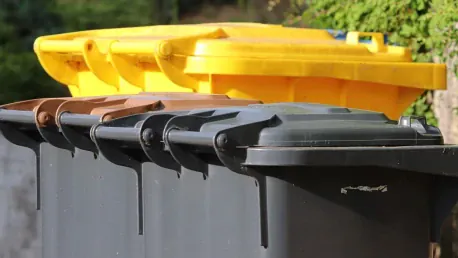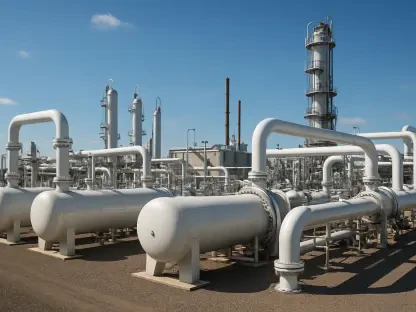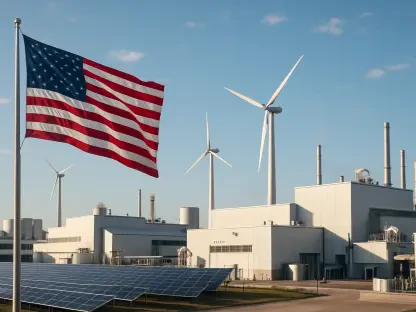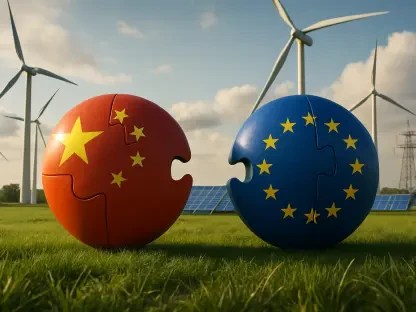The waste management sector is experiencing a momentous transformation driven by strategic partnerships and technological innovations. These advancements are significantly improving operational efficiency while promoting environmental sustainability. This article delves into various collaborative efforts and cutting-edge technologies that are fundamentally revolutionizing waste management practices and setting a new standard for the industry.
Collaborative Efforts for Environmental Sustainability
Partnerships between local councils and private waste management companies are instrumental in advancing sustainability goals. One notable example is the collaboration between Falkirk Council and Keenan Recycling, which began in 2019. This partnership focuses on commercial food waste collection and adheres to the Waste (Scotland) Regulations 2012, ensuring compliance with regional environmental standards.
Since its inception, the partnership has successfully diverted over 2,250 tonnes of food waste from landfills, reducing both waste accumulation and its environmental impacts. The collected food waste undergoes Anaerobic Digestion (AD), converting it into renewable energy and significantly reducing greenhouse gas emissions. This renewable energy is capable of powering approximately 250 British households for an entire year.
Falkirk Council and Keenan Recycling have also prioritized community awareness, educating residents and businesses about the importance of food waste reduction. By fostering a culture of sustainability within the community, these efforts significantly contribute to the Council’s Net Zero aspirations. Barry Neill, Waste Services Manager at Falkirk Council, highlighted the benefits of this partnership in terms of diverting food waste from landfills and meeting sustainability goals. Keenan Recycling’s innovative approach, which uses technology to optimize collection routes and improve data analysis, ensures efficient waste collection management and addresses issues like contamination.
Technological Innovations in Waste Processing
Advanced waste processing technologies are pivotal in transforming waste management. Impact Environmental Group (IEG) and its subsidiary, Capital Compactors and Balers (CCL), have entered into a new waste management contract with The Belfry Hotel and Resort. This collaboration, facilitated by waste management solution provider 1st Waste Management, aims to enhance environmental efforts and increase recycling volumes at the iconic golf resort.
As part of the rental agreement, CCL has installed two portable waste compactors with bin lifts for general waste and dry mixed recycling, and a mill-size baler for cardboard at The Belfry. These advanced machines optimize waste processing, reducing transportation costs and improving operational efficiency. Furthermore, CCL provides an advanced service and maintenance package to ensure the efficient operation of the machines throughout the contract, enhancing the performance and longevity of the equipment and supporting The Belfry’s sustainability goals.
Pete Dickson, Commercial Director at IEG, noted that more customers are opting for rental contracts, which offer a self-fulfilling and self-financing solution. Businesses pay for the machines through reduced waste transportation costs. Capital Compactors and Balers, as the UK’s leading manufacturer of waste and recycling compactors and balers, provides custom-made, high-grade equipment to ensure longevity and reduce downtime. This approach aligns with the broader industry trend towards enhanced operational efficiency and sustainability.
Automation and Robotics for Worker Safety
The integration of automation and robotics in waste management is addressing critical safety concerns for workers. The waste industry has historically involved hazardous and rugged labor, exposing workers to various risks, including harmful materials, repetitive strain injuries, and physical dangers from operating heavy machinery. Waste Robotics, a leader in this field, is leveraging AI-powered robotics systems to handle hazardous tasks and reduce these risks.
AI-powered systems by Waste Robotics are designed to precisely identify and sort waste, minimizing the need for manual handling of sharp or hazardous materials. These robots can operate continuously in environments that may be unsafe or fatiguing for human workers, thus enhancing safety. By reducing direct contact between workers and harmful waste streams, these robotic systems help mitigate contamination risks and improve overall safety in waste management facilities.
Waste Robotics collaborates with facility operators and workers to ensure that robotic solutions complement existing operations. The company also provides comprehensive training and ongoing support to facilitate seamless integration of these innovations into daily workflows. This collaborative approach ensures that robotics not only improve safety but also enhance operational efficiency.
Enhancing Operational Efficiency through Data Analysis
Data analysis is becoming an integral part of modern waste management, enabling more efficient and effective operations. Keenan Recycling’s innovative approach includes the use of technology to optimize collection routes and improve data analysis. By leveraging data analytics, waste management companies can identify patterns and trends, allowing for better decision-making and resource allocation.
This data-driven approach enhances operational efficiency, reduces costs, and supports sustainability goals. In the case of Falkirk Council and Keenan Recycling, the use of data analytics has ensured efficient waste collection management and addressed issues like contamination. This initiative highlights the potential of technology to streamline processes and deliver significant benefits in waste management.
Promoting a Culture of Sustainability
Community engagement and education are essential components of promoting a culture of sustainability in waste management. The efforts of Falkirk Council and Keenan Recycling to raise awareness about food waste reduction serve as a prime example of how education can drive positive environmental change. By educating residents and businesses about the importance of reducing food waste, these initiatives foster a sense of responsibility and encourage sustainable practices.
This community-focused approach not only supports waste reduction efforts but also contributes to broader environmental sustainability goals. By involving the community and prioritizing education, waste management initiatives can create a lasting impact and drive collective efforts towards a more sustainable future.
The Future of Waste Management
The waste management sector is undergoing a significant transformation, propelled by strategic partnerships and technological innovations. This wave of advancements is enhancing operational efficiency and promoting environmental sustainability. Improved methods of handling waste are becoming the norm, aimed at reducing the overall footprint and boosting eco-friendliness.
Key players in the industry are collaborating to develop integrated systems that streamline waste collection, sorting, and processing. These partnerships enable the sharing of resources and expertise, leading to more effective solutions. Additionally, cutting-edge technologies such as automation, artificial intelligence, and data analytics are playing a pivotal role. Automation is reducing manual labor, making processes faster and more accurate. Artificial intelligence helps in sorting recyclables from waste, ensuring minimal contamination and maximizing the recycling rate. Data analytics provides insights to optimize routes for waste collection, minimizing fuel consumption and emissions.
Moreover, advancements in waste-to-energy technologies are turning what was once disposal material into valuable resources. This approach not only reduces the volume of waste going to landfills but also generates energy, contributing to energy sustainability.
Overall, the waste management industry is setting a new standard through these collaborative efforts and technological advancements, answering the growing demand for efficient and environmentally responsible waste solutions.









